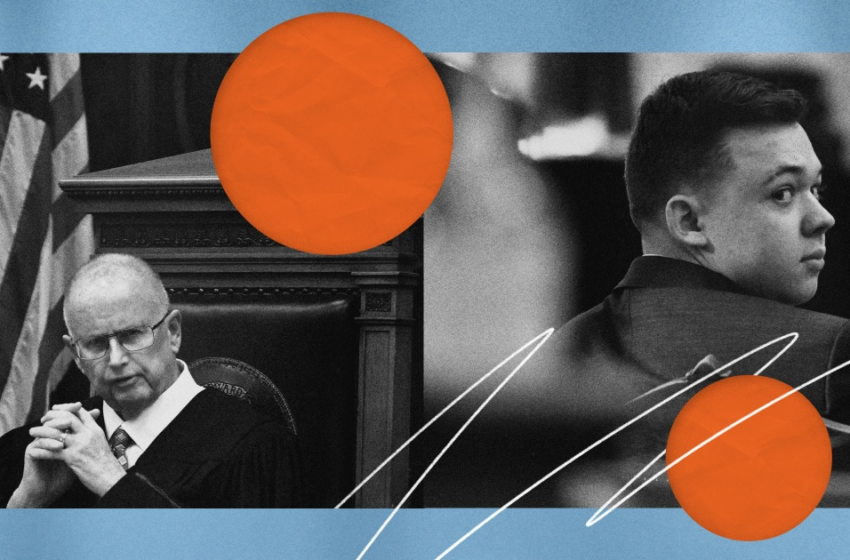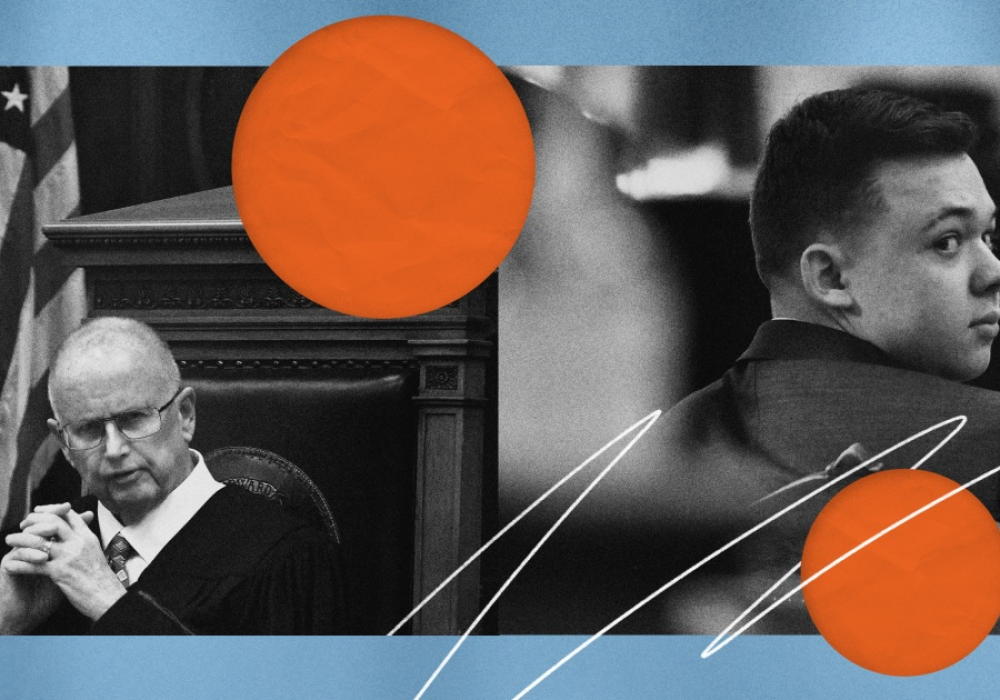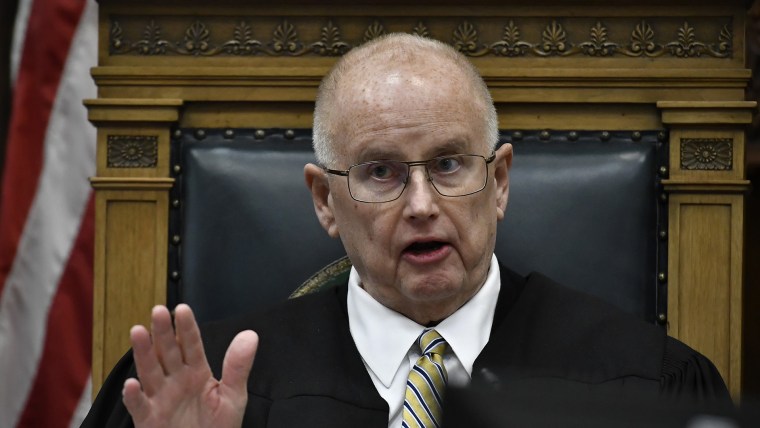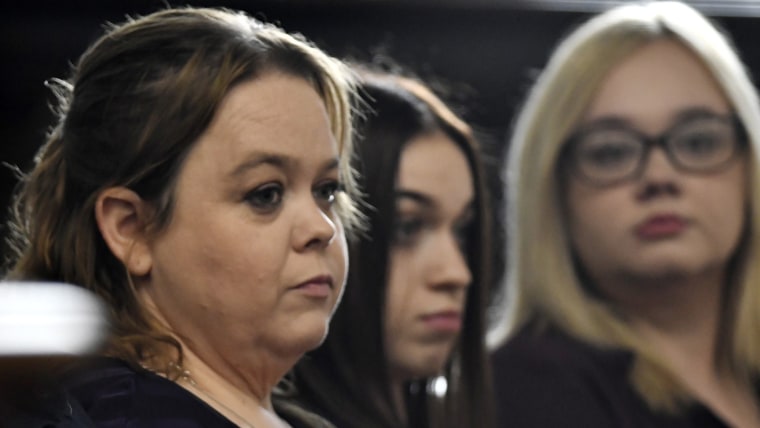When closing arguments begin Monday in Kyle Rittenhouse’s homicide trial, legal experts expect a dominant and unflinching arbiter to rule the courtroom until the end: Judge Bruce Schroeder.
Schroeder, 75, has not shied away from the national spotlight while presiding over the biggest case of his more than four decades on the bench in Kenosha County, Wisconsin.
During the almost two weeks of the trial, he has lashed out in anger, lectured the jury by citing Roman history and the Bible, and been a divisive figure to those watching the proceedings. On Friday, while hearing arguments about what to include in jury instructions, he quipped about getting text messages from “my few remaining friends” as part of a larger point about touchscreen technology on electronic devices.
He also grew prickly about a debate over photos, saying: “You’re asking me to give an instruction. I want to see the best picture!”
Former Vermont Gov. Howard Dean, a Democrat, echoed sentiments on social media questioning his courtroom style, tweeting Schroeder is “an incompetent Judge on the case who ought not to be on the bench.”
Steven Wright, a clinical law professor at the University of Wisconsin-Madison, disagreed with Dean’s characterization, but said that judges have a responsibility to be neutral so that people have a sense that a trial is being conducted impartially and fairly under the law.
“The things I’ve seen from the judge wouldn’t constitute misconduct or jeopardize Mr. Rittenhouse’s constitutional right to a fair trial, but any time that the judge approaches the line of a controversial or polarizing issue, it hurts that goal to instill nationwide faith in our criminal justice system,” Wright said. “It was Chief Justice John Roberts who said ‘judges are like umpires.’ So the umpire should never be the star of the baseball game.”
Schroeder grabbed attention during the televised trial for scolding the prosecution for its line of questioning on the same day that Rittenhouse, the Illinois teenager who faces multiple charges in the fatal shooting of two men and the wounding of a third in Kenosha last summer, took the stand.
The judge’s personality and personal values also came across in other ways at trial: On Veterans Day, he requested everyone applaud for the veterans in the courtroom, which turned out to be a sole person, a witness for the defense; his cellphone inadvertently went off, revealing his ringtone choice as “God Bless the USA”; and he joked about Asian food delivery for lunch, which prompted backlash by some on social media who found it offensive, claiming racial overtones.
The series of remarks and incidents highlight how Schroeder has risked the appearance that he’s imprinting too much of himself onto the trial.
“Every time he does something that other judges might not have done and demonstrates some aspect of his values and personality, he should know he might alienate some part of the country, whether he means to or not,” Wright said.
Scrutiny of Schroeder began even before the trial opened against Rittenhouse, who prosecutors have argued was unjustified in using deadly force during a night of racial justice protests on Aug. 25, 2020.
Rittenhouse, now 18, testified he had gone to Kenosha to protect businesses from looters, and that he was defending his life when he was confronted by Joseph Rosenbaum, 36, and Anthony Huber, 26, who were killed, and Gaige Grosskreutz, 27, who was injured.
Schroeder had ruled that the three men could not be referred to as “victims” during the trial, but that the defense was permitted to use the terms “looters,” “arsonists” and “rioters” if it was shown they engaged in those acts.
The contrast drew criticism from legal observers who said framing those killed as “looters” could put a negative connotation in jurors’ minds the same way “victims” could be viewed as sympathetic.
Schroeder’s courtroom conduct drew praise from Rittenhouse’s mother, Wendy Rittenhouse, who told Fox News’ Sean Hannity on Thursday that he has been “very fair” during the trial and people told her he “doesn’t allow no nonsense in his courtroom.”
Legal experts say Schroeder’s decision to salute veterans in the courtroom could play to members of the jury, especially when the only person who was applauded was testifying in defense of Rittenhouse.
“I probably would have avoided it,” Wright said.
But Michael Cicchini, a Kenosha-based defense attorney who’s had more than 10 jury trials before Schroeder, said jurors aren’t going to be swayed by the mere fact someone has a military record.
If anything, Cicchini said, Schroeder’s demeanor in which he dresses down attorneys or appears ornery is not uncommon.
“You’ve got to be thick-skinned if you want to practice in Kenosha. Schroeder is not even the worst of the judges I’ve appeared before in that regard,” said Cicchini, who writes about the importance of judicial ethics.
But Schroeder, the longest-serving circuit judge in Wisconsin, has had a reputation for being a jurist whom defendants have sought to avoid. In 2006, a judge from another county was assigned to Schroeder’s jurisdiction because of the high volume of requests for a different judge — a list about 250 people long.
“Schroeder’s got this reputation as ‘Bruce the Terrible,'” a local attorney, Mark Nielsen, told The Kenosha News at the time. “It’s not true, in my experience.”
Schroeder told the newspaper he was puzzled by the requests.
Attorneys who’ve had cases before Schroeder say he can be unpredictable in sentencing.
John Anthony Ward, who has appeared before Schroeder in more than 30 jury trials over the years, said the way the judge has overseen the Rittenhouse trial and the rulings he’s made is consistent and insists “he’s not showboating for the cameras.”
“He’s not purely liberal. He’s not purely conservative,” Ward said. “He’s a traditionalist.
“So if you want to define Judge Schroeder, it’s this simple,” Ward added. “He wants the guilty to be found guilty and the innocent to be found not guilty.”












